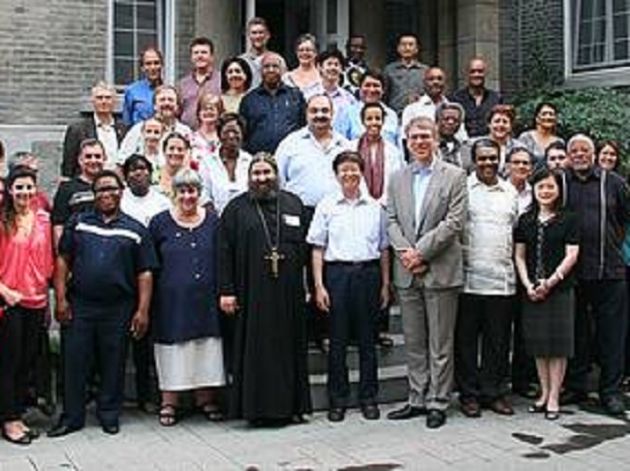World churches' body head visiting China

The World Council of Churches general secretary, Rev. Jerry Pillay, is visiting China from May 23 to 28.
According to the council, he will meet with the China Christian Council, member churches of the WCC, and interreligious partners.
In a brief statement, the WCC said Pillay will offer a greeting at St Paul's Church.
In addition, he will visit the Nanjing Union Theological Seminary, Yonghe Temple, the Chinese Islamic Association, the Chinese Catholic Patriotic Association, and the Bishops Conference of the Catholic Church in China.
Religion in China is always a contentious issue, and religion has often been frowned upon during communist rule.
According to the U.S. Department of State, the Chinese government recognizes five official religions: Buddhism, Taoism, Islam, Protestantism, and Catholicism.
Regulations require religious organizations to register with the government.
Only religious groups belonging to one of the five state-sanctioned religious associations are permitted to register, and only these organizations may legally hold worship services.
In January 2018, the then-WCC general secretary, Rev. Olav Fykse Tveit, and a WCC delegation visited churches in China.
That delegation visited Shanghai and met with the China Christian Council and the Three-Self Patriotic Movement, as well as with the leadership and students at the East China Theological Seminary.
They traveled to Xi'an and visited Shaanxi Bible School and Jing Xin Church.
In Beijing, Tveit preached in Chongwenmen Church on the theme "Jesus Christ, the joy of the World."
The WCC delegation also met with Chinese religious leaders and State Administration for Religious Affairs representatives.
Tveit said at the time, "This invitation to visit our member churches in China is highly appreciated and received with great joy widely in the WCC and the ecumenical family.
"As we begin the year of the WCC's 70th Anniversary in China, we show that the WCC is a living fellowship with a rich legacy now active and open for the calling of the ecumenical movement in the 21st century."
He noted: "China has the world's largest population and is a very significant partner in addressing the global challenges of our time. The church in China has a very significant role in shaping the Christian witness and service in our time, both in China and in the global fellowship."
The WCC's executive committee had visited China from Nov. 17-24, 2016.
That visit was hosted by the China Christian Council and the Three-Self Patriotic Movement.
It was the first meeting of a WCC governing body in China.
Since the 7th assembly of the WCC in Canberra in 1991, the China Christian Council has been a full member of the fellowship of the WCC.
The WCC noted that within three decades, China may be home to the largest Christian population in the world.